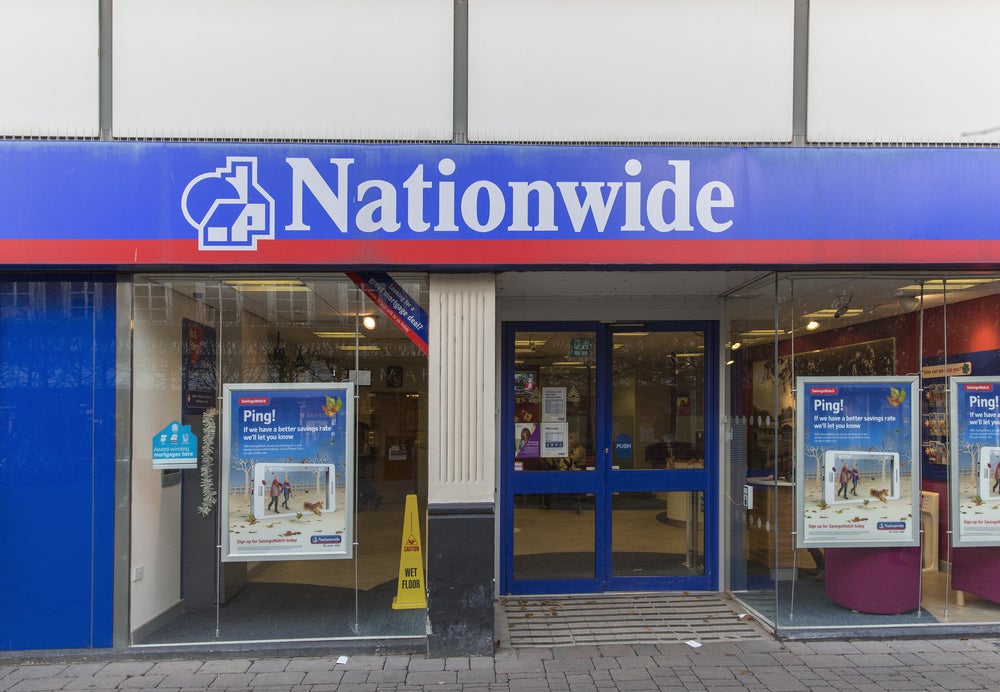
Nationwide has made a very strong statement with its latest advertising campaign. The bank is putting its eggs in one basket with its advertisement scheme, focusing on its refusal to close bank branches. The advert stars Dominic West, portraying a parodied, apathetic banking boss, who does not sign a leaving card of an employee of 25 years, goes out for an expensive company-paid lunch before talking of cutbacks and most notably, is intent on closing branches.
The advert then features the tagline: “Unlike the big banks, we’re not closing our branches.” While the advert is refreshingly unambiguous in its honest and slightly passive-aggressive approach, it could lead to some potential issues. Nationwide must be extremely confident that this is a certainty. Who can forget Netflix’s infamous tweet, “Love is sharing your Netflix password” before changing its mind and deciding that password sharing is against the rules?

Access deeper industry intelligence
Experience unmatched clarity with a single platform that combines unique data, AI, and human expertise.
The advert has received a varied reception on social media. A lot of it is praise that is as direct as the message in the advert. Many have compared West’s likeness to Nigel Farage, with the character in question holding a milkshake as a potential nod to the infamous time when a milkshake was thrown over the former MP. It goes along with one user’s suggestion that he is made intentionally to look like Farage to mock Farage’s battle against NatWest. However, this does seem to be quite a stretch. If the actor’s middle name was Nathanial and went by Dominic (Nat) West, perhaps there would be a stronger argument.
Nationwide’s reduction in hours isn’t mentioned
Some viewers suggested some potential hypocrisy in the advert, suggesting that Nationwide has in fact already closed some branches. One user pointed out that their local branch in Putney, has already shut down and become a Burger King. Another said that their branch in Selsdon has also closed. One user wrote “But what you are doing is reducing the number of days you’re open.” This has become a recurring point, suggesting that some facts are intentionally omitted by Nationwide. If Nationwide were to ever close a branch, this advert would be used against them. As we can see from Twitter, some are already doing this.

The advertisement campaign comes at a time when Nationwide has seen net losses in switches for the first time in nine quarters. Nationwide has pulled its switching initiatives while some banks still offer a reward. This advertising scheme could be seen as a drastic measure by Nationwide to continue success in what is a time of great change for the high street bank, with Nationwide putting all its faith in its customer service to convince customers to bank with them.
Regardless of what people feel about this polarising advert, it cannot be argued that it has been effective. The advert plays on most advertisement breaks on television, features on billboards around the country and is placed between the trailers and the start of the film at Odeon cinema, with this being a key advertorial space. The advert is ever-present. In a time when bank closures are mentioned in the paper each day, Nationwide are attempting to make their voices be heard even louder. While it is created in a bid to celebrate the honesty and subtlety of Nationwide, it is very loud and in your face.

US Tariffs are shifting - will you react or anticipate?
Don’t let policy changes catch you off guard. Stay proactive with real-time data and expert analysis.
By GlobalDataOur signals coverage is powered by GlobalData’s Thematic Engine, which tags millions of data items across six alternative datasets — patents, jobs, deals, company filings, social media mentions and news — to themes, sectors and companies. These signals enhance our predictive capabilities, helping us to identify the most disruptive threats across each of the sectors we cover and the companies best placed to succeed.






